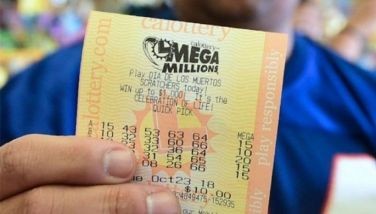EDC: Steaming ahead with CSR
MANILA, Philippines - It was the last of this year’s seven-summer camp series. Over 40 campers were gathered in a big circle under a huge tent, taking turns giving testimonies about their week together halfway up the slope of Mount Apo in North Cotabato, just outside Kidapawan City.
This one camp is unusual because, instead of the usual children, the participants are public school teachers; some from the Bicol region, Leyte, the Negros provinces and the rest from Mindanao. The previous six camps were for select public high school students.
Sponsored annually since 2004 by Energy Development Corporation (EDC), the Philippines’ only geothermal energy company and the world’s second largest producer, the “Energy Camp” series – all held in EDC plant grounds – is part of the company’s corporate social responsibility (CSR) program.
CSR programs are prone to dismissal by the public as mere window dressing or advertising gimmickry, especially if their impacts are negligible and disproportionate to the hype that often go with it. However, in EDC’s experience, CSR is an indispensable management tool because of its nature of business.
Perhaps the best yardstick of success of EDC’s civic action programs isn’t the number of scholars sent to school or patients given health checks, but the frequency of attacks on its five power plants from communist New People’s Army rebels.
“For the past five years, we haven’t been harassed by the NPA since we launched our CSR program,” relates Paul Aquino, the company’s president. “The letters demanding revolutionary tax (the NPA euphemism for extortion) stopped two years ago.”
Geothermal energy is as simple as boiling a kettle of water on the stove. At 250 degrees Celsius (two and a half times the boiling point of water), steam generated from underground water reservoirs by the earth’s heat is used to turn turbines which, in turn, crank generators to produce electricity.
High pressure blasts steam through cracks in the earth’s crust to the surface. In the geothermal energy business, the trick is to find those vents. That is why EDC’s five plants from Luzon to Mindanao are all in remote areas – all infested with NPA rebels and beyond easy each of Philippine Army units.
“Just one rifle grenade can cause damage costing millions of dollars,” says Aquino, stressing the need for EDC’s civic action program, which focuses on providing health care, education, livelihood, and promoting environmental preservation. EDC’s Mindanao Geothermal Production Field on scenic Mount Apo demonstrates the case.
EDC’s warm reception from the local communities makes it difficult to imagine the fierce opposition from environmentalists and the local Roman Catholic Church that the company initially had to endure – in spite of geothermal energy’s green credentials.
Mount Apo’s designation as a nature preserve made the plant a hard sell. In the mid-1980s when the government announced the project, it took EDC (then the geothermal unit of state-run Philippine National Oil Company) over five years to painstakingly explain how geothermal energy worked, how the company would preserve the environment, and how it would generate local economic development.
In this era of global warming and recession, the future of geothermal energy as a renewable resource is hot. EDC, the Lopez group of companies’ newest acquisition, supplies 1,200 megawatts, or 60 percent, of the Philippines’ geothermal capacity. It is currently exploring 12 sites in Indonesia, which Aquino describes as “the Saudi Arabia of geothermal energy.”
But it’s a high risk business. It costs up to $150,000 for chemical studies to find out if there’s something probably boiling in the ground. It costs about $7 million to build a road, haul in the equipment and dig a well to check the find. Then you determine how big the site is by digging two more wells.
“By this time, you’ve already spent about $15 million just to know how big and what the chemical makeup of the fluid is (the liquid producing the steam),” Aquino elaborates. “And by that time, after spending $15 million, you find out that it’s not sustainable. You’re dead.”
Average development period for one plant is seven years. That’s only for starters. EDC’s Indonesian venture depends on a list of factors such as political stability, tariff rates and local friendliness.
It would now be folly for the NPA in North Cotabato to anger the local communities by harassing the power plant, which supplies over 100 megawatts of electricity or 13 percent to the Mindanao grid with its two generators.
Because of the road that EDC built to truck in equipment, locals now enjoy a spa-like dip at a hot spring resort, run by a cooperative, minutes away from the plant. It takes seconds to imagine the potential of hot springs to bring in foreign tourists.
Providing a model of mixing business and environmental protection, Mount Apo’s forests have returned because of the company’s tree planting program, which is needed to prevent the geothermal reservoir from drying up. It’s like constantly adding water into a boiling kettle to prevent all the water from evaporating. No water, no steam.
EDC’s corporate social responsibility program could’ve taken a page or two from the world’s oldest military manual, Sun Tzu’s “The Art of War”. Force of arms alone don’t win conflicts. It’s also about winning hearts and minds.
- Latest




















 Partner
Partner









